Reviews for July 31st, 2009
The Collector
Directed by Marcus Dunstan.
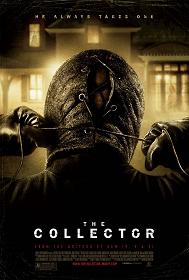
Arkin (Josh Stewart) a handyman and ex-con, desperately needs money to pay for his ex-wife’s debt, so he trespasses into the home of his boss in hopes of retrieving a precious gem locked in a safe. Little does he know that there’s a sadistic, masked killer, a “Collector” (Juan Fernandez) lurking inside the house. The Collector has designed elaborate traps to hurt, snatch and kill his victims, includes Arkin’s boss, Michael (Michael Reilly Burke) and his wife, Victoria (Andrea Roth), who are already stuck in the traps. Their teenage daughter, Jill (Madeline Zima) and eight-year-old Hannah (Karley Scott-Collins) have yet to arrive to be one of those victims. Will Arkin be able to kill the vicious madman, save the victims and get out of the house alive? The answer to that question doesn’t really matter because the screenplay by director/co-writer Marcus Dunstan barely establishes any of the characters as worth caring about. What does matter is how much imagination, palpable suspense and surprises can be found throughout the film. Unfortunately, if you’re looking for anything more than grisly killings with lots of screaming and buckets of blood spilled and gore, then you’ll be quite disappointed. The modicum of suspense comes from the musical score, fast-paced editing with a camera that moves frenetically around the house. Dunstan overuses sound effects and close shots while hitting you over the head with pseudo-intellectual symbolism by focusing the camera on a spider in the beginning and end of the film. To compare the Collector to a spider trapping its prey in a cobweb doesn’t add any kind of much-needed insight into the motivations or mind of the killer. As the film progresses, the plot makes less and less sense and leaves you wishing you were watching a truly frightening horror film that tread similar water, such as the underrated Malevolence and the French film Inside. The Collector offers plenty of gore and stylish cinematography, but no imagination, surprises or intrigue. Ultimately, it’s tedious, inane and increasingly preposterous, even if you’re willing to suspend your disbelief and to check your brain at the door for 88 minutes. Number of times I checked my watch: 5Released by Freestyle Releasing. Opens nationwide. 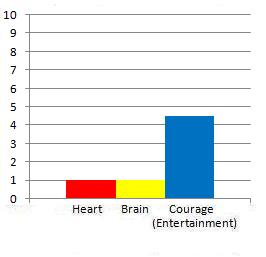
The Cove
Directed by Louie Psihoyos.
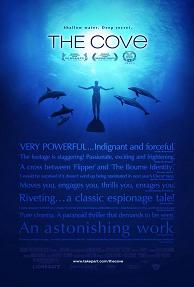
This brave and provocative documentary exposes the inhumane slaughtering of dolphins in Taiji, Japan. The dolphin meat, which is very high in mercury, can be found in supermarkets, restaurants and even in the lunches of school children throughout Japan. Richard O'Barry formerly trained the five dolphins on the TV show “Flipper” back in the 1960’s and claims that dolphins don’t belong in enclosed areas such as aquariums with so many people gathering around to watch them perform all sorts of tricks. Sure, dolphins are quite people-friendly and cute, but they’re also very intelligent and highly sensitive to even the smallest sound from a faraway distance, so they belong in their natural environment: the open sea. O’Barry founded the Dolphin Project in 1970 to free as many captive dolphins as possible and to raise the public’s awareness of how they’re being treated so inhumanely at dolphin shows. He joins other activists as they travel to Japan to investigate and expose the vicious slaughtering of Dolphins in Taiji. Director Louie Psihoyos films the documentary as if it were a thriller blended with a little horror. At times, you forget you’re merely watching a documentary because you’re so immersed in the events that take place onscreen. He follows the activists as they try to get close enough to the horrors going on in Taiji to document them with a camera, which give them some well-needed hard evidence. Just like the saying goes,images tend to speak louder than words. That task isn’t as easy as you might hope it would be because the activists go up against an industry that’s raking in billions of dollars for the capturing and slaughtering of dolphins. As the team of activists gets closer to Taiji, they’re being tailed by what seems like a sort of mafia who hopes that they’ll be deterred out of fear for their own safety. How they come up with a clever, sneaky idea to get the crucial footage won’t be spoiled here, though. Psihoyos, who has had 18 years of experience working as a photographer for National Geographic, includes beautiful cinematography filled with breathtaking images which provide a sharp contrast to some of the brutal and disturbing images that follow. Those images, which reach their peak at the end with lots of bloody footage of dolphin slaughtering, are quite graphic and cringe-inducing, but very important to watch because they represent a harsh reality that absolutely needs to be exposed to everyone around the world without any sugar-coating. At a running time of 92 minutes, The Cove manages to be a bold, captivating, riveting and well-edited documentary that finds just the right balance between entertaining the audience and provoking them intellectually as well as emotionally. Number of times I checked my watch: 0 Released by Roadside Attractions. Opens at the Angelika Film Center and the Beekman Theatre. 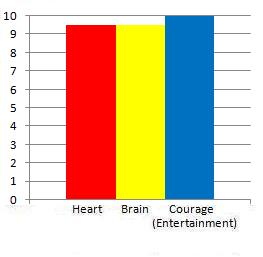
Flame & Citron
Directed by Ole Christian Madsen.
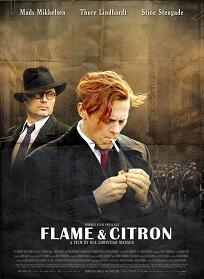
In Danish and German with subtitles. Based on a true story. During World War II, Bent Faurschou-Hviid, codenamed “Flame” (Thure Lindhardt), and Jørgen Haagen Schmith, codenamed “Citron” (Mads Mikkelsen), work together as part of the Danish resistance movement. They follow the orders of their boss, Aksel Winther (Peter Mygind), to hunt down and kill Nazis and Danish collaborators who get in their way of trying to kill the head of the Gestapo, Karl Heinz Hoffmann (Christian Berkel). Citron leaves behind his beloved wife Bodil (Mille Hoffmeyer Lehfeldt) and daughter Anne (Mai Holm Laureng), as he goes off on his dangerous mission. Meanwhile, Flame meets and falls for Ketty Selmer (Stine Stengade), a sexy, older blonde woman who has more to her than meets the eye. She’s seemingly confident, yet innately fragile. Most importantly, though, she may or may not be working in the field that she claims to be working in and may even be an informant who’s ratting on the resistance fighters to the Nazis. Either way, she’s very good at seducing Flame with her sexiness and charms. Each actor delivers a strong performance that helps to keep you fully engrossed from start to finish. Director/co-writer Ole Christian Madsen weaves a very intricate, character-driven screenplay that finds just the right balance between drama, action and suspense while maintaining authenticity, without going over-the-top, much like in Paul Verhoeven’s Black Book, and unlike in the contrived Valkyrie. The action sequences, as Flame and Citron gun down Nazis, feel quite gripping and intense because you’re constantly wondering if it’s all going to unfold as planned or not. Will killing the Nazis and Danish collaborators be so simple and easy? Blood spills from both sides of the war as the plot gradually thickens with new twists and turns while some characters find themselves being double-crossed, eventually leading up to an end-of-your-seat, intense third act. At a running time of 2 hours and 10 minutes, Flame & Citron manages to a captivating, engrossing and character-driven thriller filled with solid performances along with palpable suspense, intensity and intrigue. Number of times I checked my watch: 1 Released by IFC Films. Opens at the Landmark Sunshine Cinema and Lincoln Plaza Cinemas. 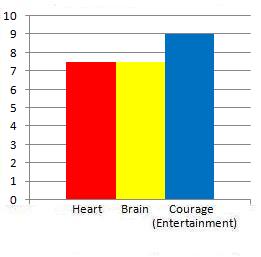
Funny People
Directed by Judd Apatow.
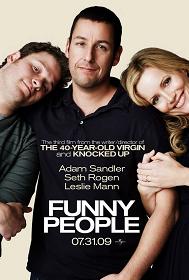
George Simmons (Adam Sandler), a famous comedic movie star and stand-up comedian, learns that he has a rare form of terminal cancer. He decides to a hire a younger, aspiring comedian, Ira Wright (Seth Rogen), to write his stand-up comedy material for him. Ira lives with two roommates, Mark (Jason Schwartzman) and Leo (Jonah Hill), who have more confidence and success in the world of entertainment than him, at least for now. When he meets Daisy (Aubrey Plaza), a fellow comedian, he wants to date her, but can’t find the right skills to impress her, especially given that she has never been in a serious relationship before. George has other issues to deal with besides his terminal illness, such as loneliness and the longing for his former lover, Laura (Leslie Mann), who left him for cheating on her and has recently gotten married to an Australian man, Clarke (Eric Bana), and has two little children, Ingrid (Iris Apatow) and Mable (Maude Apatow). After experimental drugs sends his disease into remission, he sees that as an opportunity to rekindle his romance with Laura and, hopefully, to win her back. Unfortunately, writer/director Judd Apatow fails to juggle the genres of drama, comedy and romance smoothly. The first hour-and-a-half veers toward comedy and provides a few laughs, but there’s mostly uninspired, mean-spirited and tedious humor and, of course, just like in Superbad, some penis jokes to be found along the way. One of the funniest scenes is the when George makes fun of his doctor’s accent, comparing him to a James Bond villain. Around the 90-minute mark, though, the film suddenly turns into a contrived drama peppered with a little comedy and romance for the remainder of its excessive running time of 155 minutes. The scene when George shows up at Laura’s house and meets her husband just drags on too long as does Laura making fun of Clarke’s Australian accent. Both George’s and Ira’s transformations in the second half of the film simply don’t feel organic or believable. Adam Sandler and Seth Rogan both display a modicum of charisma onscreen, but neither of their characters seems true-to-life, interesting, appealing or particularly memorable for that matter. Funny People has a few laughs and a terrific ensemble cast, but suffers from an uninspired, unfocused screenplay, boring characters and too many contrived moments, it often drags and utlimately falls flat as a drama, comedy and romance. Number of times I checked my watch: 5 Released by Universal Pictures. Opens nationwide. 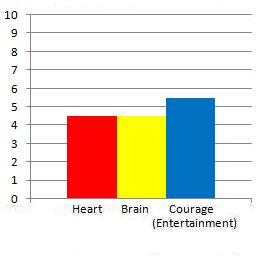
Ghosted
Directed by Monika Treut.
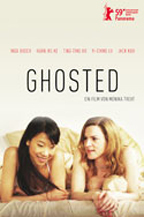
In German, Mandarin and English with subtitles. Sophie Schmitt (Inga Busch), an artist from Hamburg, still grieves over the murder of her Taiwanese lover, Ai-ling (Huan-Ru Ke). For her latest artwork, she creates a video installation dedicated to Ai-ling and exhibits it in Taiwan. Mei-li (Ting-Ting Hu), a reporter, approaches her at the exhibit and asks her for an interview which she declines. She nonetheless shows up uninvited at Sophie’s apartment and continues to pressure her for that interview. Soon enough, Sophie and Ai-ling become romantically involved with one another as Mei-li learns more about Sophie’s past and her relationship with AI-ling. The screenplay by director/co-writer Monika Treut gyrates between the present day scenes with Mei-li and the past showing how Sophie met and fell in love with Ai-ling. A few of the transitions between past and present flow smoothly while others simply lack fluidity and take away from the dramatic momentum. There’s also a little mystery surrounding whether or not Ai-ling’s uncle, Chen Fu (Jack Kao), who owns a Chinese restaurant, might actually be her father. How and why did Ai-ling die? Who murdered her? Those are some of the questions which the audience and Mei-Li want to know and remain a mystery until the end. Treut also includes an unnecessary, gimmicky subplot involving supernatural visions which Sophie experiences throughout. It’s initially intriguing to try to figure out how all of those supernatural events will ultimately make sense and connect in the large scheme of things, but, those events make the plot confusing and awkward while distracting from the modicum of dramatic momentum. Unfortunately, the dialogue feels stilted and the performances mediocre at best. The romantic chemistry between Sophie and Ai-ling falls flat, although the dynamic of how their relationship evolved is mildly engaging. Ghosted manages to be an initially intriguing, but tepid romantic drama suffering from an uneven screenplay with stilted dialogue and a distracting, gimmicky ghost story. Number of times I checked my watch: 3 Released by First Run Features. Opens at the Quad Cinema. 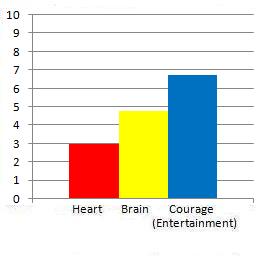
Import/Export
Directed by Ulrich Seidl.
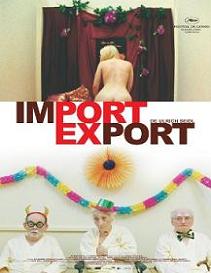
In German, Slovak and Russian with subtitles. Olga (Ekateryna Rak), a single mother, struggles to make ends meet while working as a nurse at a hospital in the Ukraine. She doesn’t receive her full paycheck each month as expect, so she desperately seeks a new job to bring in some much-needed income to support herself and her baby. An opportunity arises for her to work at an Internet company as a live-sex model, so she tries it out, performing all sorts of sex acts in front of a camera to horny German customers who listen, watch and give her commands from their computer. That’s not the kind of work that she’s happy to do, but she doesn’t really have a choice until she finds another job. Soon enough, she quits that job and travels all the way to Austria to work as a cleaning lady for geriatric patients at a hospital, which isn’t a particularly pleasant job, but at least it’s not sleazy like the internet sex job. In a plot that runs parallel, Paul (Paul Hofmann), an Austrian man, also has trouble making a living. He finds a job as a security guard after going through training, but gets into an embarrassing situation when young gang members handcuff him, strip him down to his underwear, pour beer all over him and make fun of him. His stepdad, Michael (Michael Thomas), brings him along to the Ukraine to work as a video gambling machine installer, but that job doesn’t make him happy, either. Director/co-writer Ulrich Seidl, who previously directed the documentary Jesus, You Know and the drama Dog Days, has a knack for using visuals to create a particular mood. In this case, just like in Dog Days, the mood happens to be a very glum and depressing one, and it remains that way throughout the film. It’s easy to feel like a voyeur into the lives of Olga and Paul because you get to watch both of them going about their mundane lives and ending up in uncomfortable, depressing situations. A pensive viewer might ask, “Why should I be watching the misery of other people?”, but Seidl doesn’t provide easy answers to that question. At a lengthy running time of 141 minutes, Import/Export occasionally drags, but offers a relentlessly stark glimpse into the morbid, tragic life of two lost souls who haven’t found happiness or prosperity. Number of times I checked my watch: 3 Released by Palisades Tartan. Opens at the Anthology Film Archives. 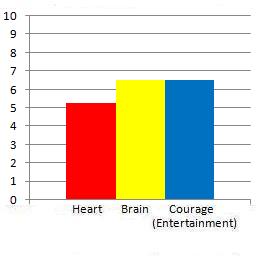
Lorna’s Silence
Directed by Jean-Pierre Dardenne and
Luc Dardenne.
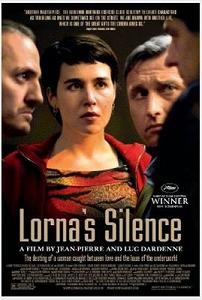
In French and Albanian with subtitles. Lorna (Arta Dobroshi), an Albanian woman lives in Belgium with her husband, Claudy (Jérémie Renier), a junkie, whom she had married in order to obtain a Belgian citizenship. She dreams of opening a snack bar with her boyfriend, Sokol (Alban Ukaj), but first she needs a lot more money. Fabio (Fabrizio Rongione), a mobster, arranges for Lorna to receive a hefty sum of money only if she divorces Claudy and marries a Russian mafioso who needs as a Belgian citizenship. However, asking Claudy to divorce her isn’t as easy for Lorna as she had initially thought. She and Claudy don’t even love one another nor do they have a remotely stable marriage, but he nonetheless refuses to agree to divorce her. She goes to the extent of physically abuses herself in an attempt to deceive the police into thinking that Claudy abused her. Her lies continue in other ways throughout the film. In a scene that adds some intrigue to the plot, Fabio wants to expedite the divorce/remarriage scheme, so he decides to have Claudy murdered through a drug overdose. The screenplay, co-written and co-directed by Jean-Pierre and Luc Dardenne, a.k.a. the Dardenne brothers, build the suspense up very gradually and, wisely, heighten the realism through their iconic cinema vérité style of cinematography that lacks a musical score. Why can’t the Dardenne brothers add a little comic relief every now and then to ease the burden carried by many depressing scenes? Unfortunately, the sense of realism and palpable tension subsides in the messy third act that drags much more than the prior scenes and leaves you with a bad aftertaste. The realism prior to that, though, does help you to focus on the strong performances of all the actors, especially Arta Dobroshi, who delivers a convincingly moving performance filled with some emotional fragility balanced with a little toughness. There’s much more to her than meets the eye and you never quite know how far she’d go to get her much-needed divorce and run off with her lover to fulfill her dreams. She’s not particularly appealing and many of the ordeals that she goes through feel emotionally devastating to watch, but she’s concurrently very true-to-life and never a dull character. At a running time of 95 minutes, Lorna’s Silence occasionally drags, but boasts a raw, emotionally complex performance by Arta Dobroshi. It’s a quietly moving, character-driven drama with a heightened sense of devastating realism and genuine suspense, which only begin to wane toward the end. Number of times I checked my watch: 3Released by Sony Pictures Classics. Opens at the Cinema Village and Lincoln Plaza Cinemas. 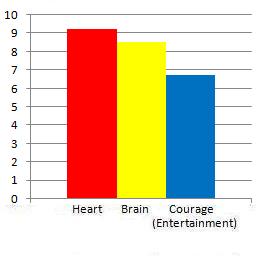
Not Quite Hollywood
Directed by Mark Hartley.
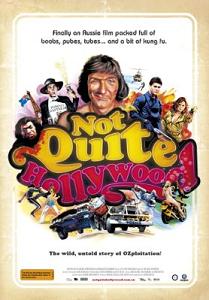
This sensationally entertaining documentary focuses on the rise and falls of Australian exploitation films, a.k.a. “Ozploitation,” back in the 1970’s and 80’s. The Ozploitation films emerged during a time when the Australian government made it easy for filmmakers to make movies by offering tax breaks to them. Australia desperately needed some sort of a film culture which it didn’t really have before the 1970’s. When the rating system was introduced, that opened the door for many filmmakers to make R-rated films that pleased audiences 18 years and older. The kind of low budget exploitation films included Sexploitation films, such as the spin-off of Alfie, Alvin Purple, which became smash hit. There are also horror films, i.e. Long Weekend, biker films, such asStone, and Kung Fu films, i.e. The Man From Hong Kong. Each of those films is filled with unabashedly cheap special effects and high energy that’s almost contagious. Director Mark Hartley does a stellar job of showing precisely what makes OZploitation films so exciting and unique. He includes many well-chosen film clips, some of which are quite outrageously hilarious. He also wisely balances Ozploitation’s glamorization and praise with an interview with critics from those time periods, namely, Phillip Adams and Bob Ellis, who both have the audacity to admit their aversion to those films. One of those films, Roadgames from 1981, even starred Jamie Lee Curtis, although the film never actually made it theatrically to the United States. Mad Max, Mad Max 2 and Dead End Drive-In, among others, i>did arrive to the theaters in the USA, though, and, with the exception of Dead End Drive-In, they became commercial hits. In a lively interview, Quentin Tarantino explains why he’s such an avid fan of Ozploitation, which, unfortunately, ended during the 1980’s and have only started to reemerge very gradually in recent films like Wolf Creek andUndead. Hopefully, there will be a second Golden Age of Ozploitation soon. At a running time 100 minutes Not Quite Hollywood manages to be a sensationally entertaining, well-researched documentary filled with insight and outrageously funny clips. Number of times I checked my watch: 1 Released by Magnolia Pictures. Opens at the Village East Cinema. 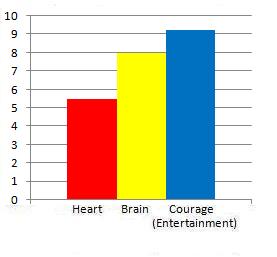
Thirst
Directed by Park Chan-wook.
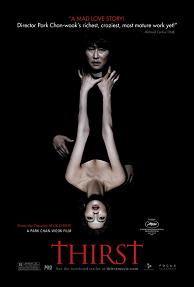
In Korean with subtitles. Inspired by the novel Thérèse Raquin by Emile Zola. Sang-hyun (Song Kang-ho) works as a priest at a hospital where he becomes sick with a deadly disease that leaves small boils all over his body. When he dies from the disease, he receives a blood transfusion with infected blood that brings him back to life without any boils on his skin. However, the infected blood has turned him into a blood-thirsty vampire. He needs blood to survive or else the boils will come back. To avoid killing anyone for blood, he drinks some from an intravenous tube of a hospital patient. Tae-ju (Kim Ok-vin) can’t stand living with her domineering husband, Kang-woo (Shin Ha-gyun), his childhood friend, so she spends time with Sang-hyun and has a sexually-charged affair with him. Will Sang-hyun be able to keep his promise not to actually kill anyone for blood? What might happen if Tae-ju becomes a vampire, too? How long can Sang-hyun keep his secret double life from his mother, Mrs. Ra (Kim Hae-sook)? Director/co-writer Park Chan-wook, who previously directed Lady Vengeance and Oldboy combines elements of horror, drama, suspense and dark comedy with mixed results. It’s somewhat refreshing that the vampire here isn’t a typical one who can be repelled by garlic or killed by driving a stake into its heart. However, the second act takes that concept and stretches it out into tedium with scenes that make you feel awkward with no surprises. How many scenes does he really need to show of Sang-hyun and Tae-ju going off together to have sex or Sang-hyun drinking blood? Later on in the second act, the plot suddenly kicks up the suspense into full gear as lots of blood spills. The atmosphere becomes less creepy and more absurd with some darkly comedic moments involving Mrs. Ra’s reactions to the madness going on around her. By then, though, Thirst no longer feels invigorating or refreshing and turns into a standard, ho-hum vampire story with a contrived romance which, in this case, ineffectively attempts to generate poignancy and tenderness. Thirst feels initially invigorating, chilling and mildly suspenseful while balanced with just the right amount of dark comedy, but it occasionally veers into a tedium of awkwardness and over-the-top bizarreness that lacks surprises. Number of times I checked my watch: 3Released by Focus Features. Opens at the Landmark Sunshine Cinema. 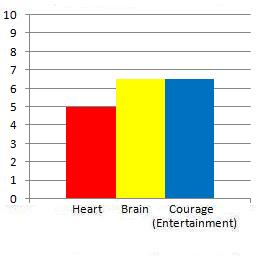
Main Page
Alphabetical Menu
Chronological Menu
______________________________________________________
|


















